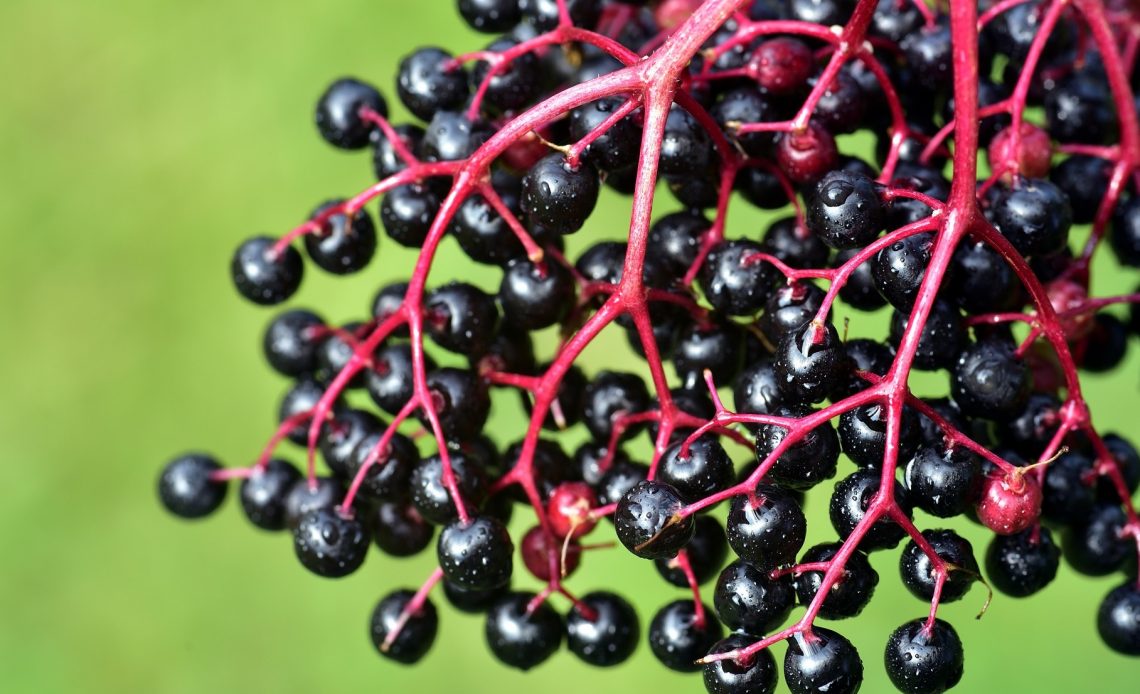

We’re here to help! Wild Yards is a completely free website that is 100% dedicated to helping you create a wildlife-friendly, sustainable yard. Read more
WildYards is reader-supported. When you buy a product through a link on our site, we may earn a comission. Every product is independently selected by our (obsessive) editors and our reviews are unbiased and objective. Read more about our mission or our privacy policy.
Elderberry bushes are beautiful plants – and what’s more, they produce some delicious fruit that is popular for use in jams, desserts, and more. However, we are not the only ones who enjoy their sweet taste. Many of us who happen to grow elderberry bushes know just how well they seem to attract certain wildlife. For example, do deer eat elderberry bushes and fruit?
Deer won’t always eat elderberries. It varies from species to species across local areas. So, what determines whether or not a deer will eat elderberries, and what other animals could be eating your bushes?
Are elderberries deer resistant?
Elderberry bushes are not always deer resistant, regardless of their reputation as being hardy against local animals. However, the deer in your state may actively eat more than just the berries. Many will happily munch away at the stems and leaves of elderberry bushes – it is not just the berries that appeal to them, regardless of the deer’s reputation for a sweet tooth.
Elderberry bushes are more likely to be deer resistant in areas that do not grow naturally or propagate wildly. Therefore, hypothetically, it is more likely your elderberry bushes will be deer resistant if you plant them from scratch – and that they are not familiar to deer in the local area.
That said, anecdotal evidence suggests deer will eat elderberries in some states regardless of the food available to them otherwise. Therefore, it’s likely not safe to assume your elderberry bushes will be fully resistant to deer. What’s more, you cannot safely rely on elderberries to attract deer to your yard.
Therefore, it’s likely best to ensure you line your yard with plants deer love – and to leave out nuts and fruit (such as oranges) that are guaranteed to bring them flocking.
If you notice your elderberry bushes getting eaten, it’s more likely you have other visitors making a light snack of your plants.
What animals eat elderberry bush?
Many rodents – such as squirrels – will commonly feed on elderberries, as will a variety of local wild birds. If you live in an area where black bear visits are common, ursine visitors will happily pick from elderberry bushes for a sweet treat.
Animals other than deer will eat at the stems, leaves, and general foliage of elderberries, too – such as moose and elk.
Therefore, it makes sense to try and protect your elderberry bushes as much as possible against wild visitors, regardless of whether or not deer are making a beeline for them. Consider setting up netting or even perimeters around your most prized growths to stop animals from consuming too much.
There’s a balance you will need to strike here – as if you are keen to welcome animals to your garden, you shouldn’t completely restrict it. Try to cordon off certain zones and areas of your garden for crops you wish to grow for your own personal harvesting.
What berry bushes are deer resistant?
It would appear as though the only berry bush that could be considered deer resistant is the blueberry elder bush. The berries are quite tart, and so appeal to a particular palette. Deer tend to avoid them, opting for other foods in the area, such as sweeter fruits.
Deer may avoid this particular berry bush simply because the fruit is too sharp for them or because they don’t like eating from this type of foliage. Given the ruminant nature of a deer’s diet and digestive system, they have evolved to be particular with foraging for anything bland and inoffensive. Despite this, however, you won’t find deer eating grass too often (regardless of what you may have heard).
It is essential to note that nothing is truly deer resistant. Deer are scavengers, and they will eat what is available to them if they are extremely hungry, or if there are no plants, nuts, or fruit that they would otherwise prefer.
When trying to repel deer from your yard, it is more prudent to set up physical barriers in your garden or to grow plants and shrubs that they tend to only eat as a last resort. For example, deer won’t eat coleus plants, and if you’re growing a vegetable garden, deer will tend to avoid cucumbers unless desperate.
Statistically, it’s unlikely that your elderberry bushes will appeal to your local deer. However, it pays to be safe rather than sorry, so try growing your bushes away from the far edge of your yard. You may even wish to distract them with trees that deer love – such as oaks, which produce acorns, some of their favorite food in the wild.
